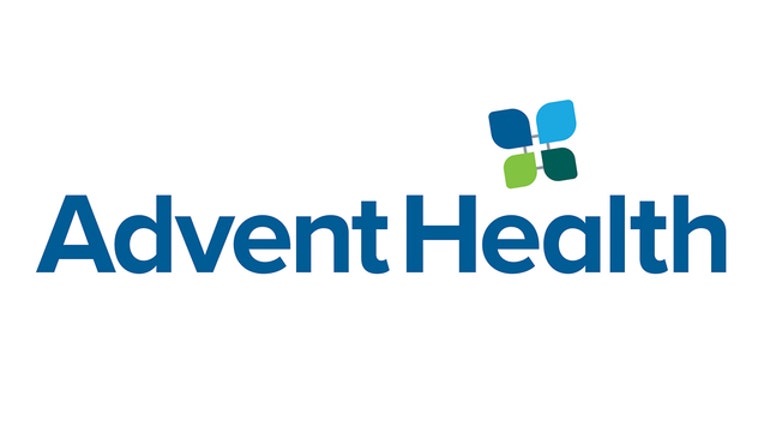AdventHealth House Calls: Colorectal Cancer Awareness Month

Dr. Daniel Galante, a Colorectal Surgeon at AdventHealth Medical Group, answered all of your questions on colorectal cancer at 8 a.m. on Monday morning.
To learn more about AdventHealth, click here.
ANSWERED QUESTIONS:
Q: What signs should we look for in colon cancer?
A: Great question! You should be aware of changes in the caliber of your stool, blood in your stool, unintentional weight loss and a sense of bloating/cramping that just doesn't resolve. Unfortunately many cancers don't show symptoms until they are advanced, and that's why screening is so important!
Q: Is there a populaiton at higher risk for cancer?
A: African Americans have a documented increased risk of colon cancer. Additionally, patients with inflammatory bowel diseases (Ulcerative Colitis and Crohn's Disease) are at an increased risk. Family history also elevates one's risk.
Q: Doc mentioned inflammation of colon, how do you know if colon has that
A: Signs of inflammation of the colon include persistent diarrhea or mucus, bad lower abdominal cramps that don't go away, blood mixed in and coating your stool.
Q: Had stage 4 rectum cancer, rectum removed 2009 ten years now also a fisual (?)had about 10/15 minor surgeries last one 2013. Have not seen any medical professional now big issues with ileostomy very scared and nervous to see anyone don't know what to do any guidance advise
A: You should follow-up with your surgeon to discuss your ileostomy issues. Many colorectal surgeons have certified ostomy nurses to help patients deal with problematic stomas and other issues. Additionally, there are many support groups for patients who have survived colorectal cancer.
Q: How common is colorectal cancer? Is it more common for some rather than others?
A: Colon and rectal cancer is the 4th most common cancer in the US, behind Lung, Breast and Prostate.
Q: What is the survival rate for colorectal cancer?
A: The 5-year survival rate for colon and rectal cancer is about 66%.
Q: How do you know the difference between being bloated versus having colorectal cancer?
A: Bloating doesn't mean cancer, it is just one symptom of colon cancer. If bloating doesn't go away, you should speak with your doctor.
Q: When you say any blood is your stool is bad, does that count even if it is very light?
A: You should never have blood in your stools. Sometimes it's just from hemorrhoids or irritation in the anal canal, but sometimes it is related some something worse. It helps to get checked out, regardless of the quality of the blood.
Q: I usually have abdominal pain that comes and goes. How long of having pain without relief should I be concerned I could have colorectal cancer?
A: There is no "timeline" for pain, but if you have relatively chronic abdominal pain, you should see your doctor. Pain does not equal cancer, but it is a signal that your body is giving you to get checked out.
Q: Is colorectal cancer more common in men?
A: There is a slightly higher risk in men, but regardless we recommend starting screening at age 45.
Q: Does colorectal cancer affect any age? Or does it tend to come later in life?
A: The average age group of diagnosis is the 50-60 group, but we are seeing an increase in younger patients. Patients of ANY age can develop colon cancer. The current American Cancer Society guidelines recommend starting screening at 45 years old for average risk adults.
Q: I have IBS. Am I more likely to get colorectal cancer? How will I know the difference?
A: IBS is not a risk factor for colon cancer. You should speak with your gastroenterologist regarding screening.
Q: What should I look at in my family history to know if my chances for colorectcal cancer are high?
A: Family history includes family members who had colon or rectal cancer, inflammatory bowel disease and other polyp-related syndromes. Of special concern are those family members who developed colon or rectal cancer early in life.
Q: What can I do now to avoid getting colon cancer? Certain diet, maybe?
A: The number one way to avoid colon cancer is to get screened. Healthy lifestyle habits (diet, exercise, avoiding alcohol and tobacco, etc) are all great ways to stay healthy, but screening is the most important and has the greatest impact.
Q: I tend to enjoy a few beers a day and I smoke cigarettes. Does this increase my chances for colorectal cancer?
A: There are links between alcohol and tobacco with development of cancer. You should speak with your doctor about risk-reduction strategies and try to quit smoking.
Q: What treatments are there other than chemotherapy?
A: The primary treatment for colon cancer is surgery. Chemotherapy is only used for advanced colon cancer.
Q: Does exercise help avoid colorectal cancer?
A: All healthy lifestyle habits act as risk reduction, but cannot definitively prevent cancer.
Q: I follow the keto diet, which is high in fat and protein, but low in sugar and carbs. Is this diet okay for preventing colorectal cancer?
A: All healthy lifestyle habits act as risk reduction, but cannot definitively prevent cancer. There are no definitive links between high fat intake and cancer, and there are some associations between increased red meat intake and cancer risk. Everything in moderation.
Q: I have type 2 diabetes- will this affect my colon and rectum at all?
A: Diabetes may increase your risk for many other health problems. You should speak with your doctor.
Q: What is a polyp?
A: A polyp is an abnormal growth of tissue in the colon, that can lead to cancer.

